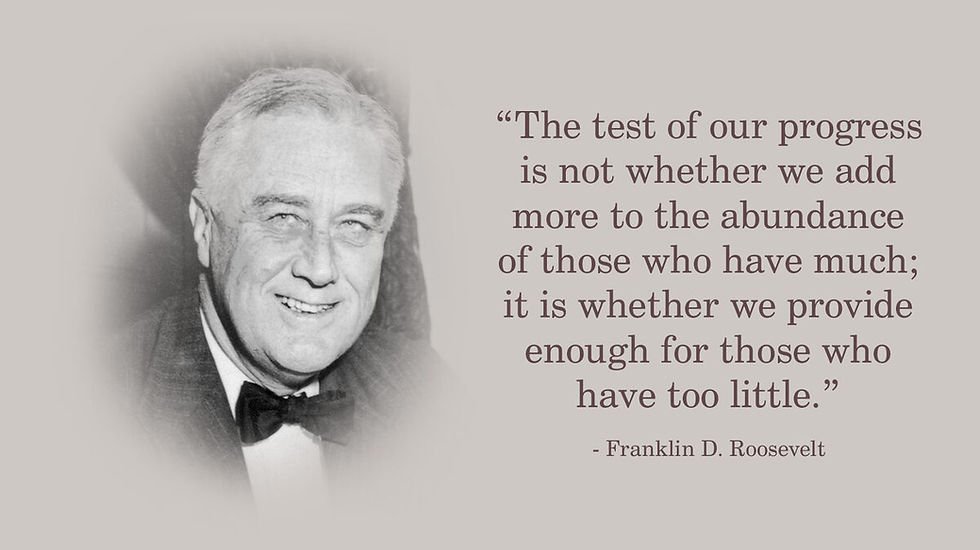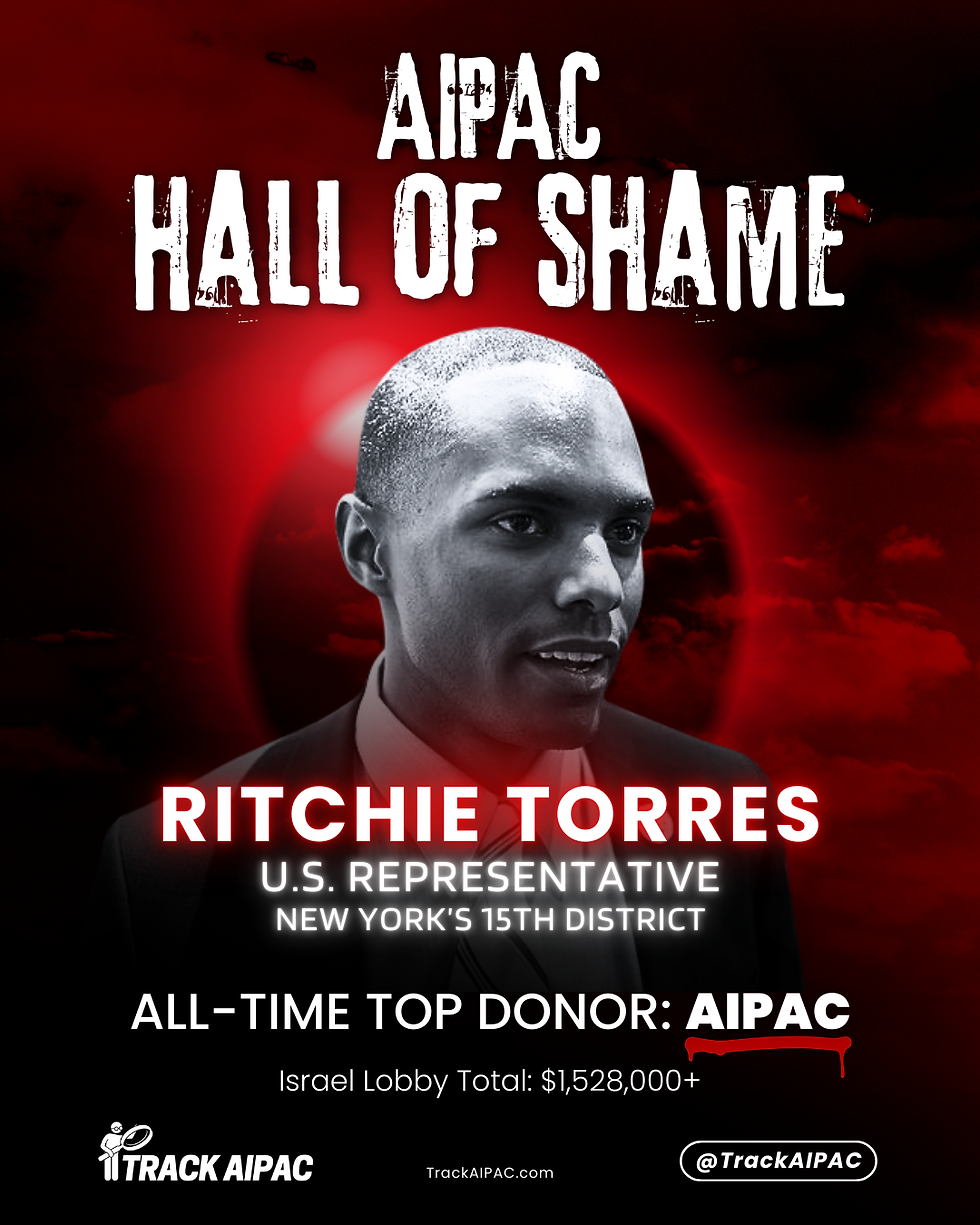Mamdani Won on Policy, Not Posture… For Democrats, Progressive Policy Is The Path, Not The Problem
- Howie Klein

- Jul 28, 2025
- 6 min read
Winning Isn’t About Style— It’s About Whose Side You’re On

Sometimes I wish people would stop referring to it as “Trump’s Big Ugly Bill” and call it what it is: “The Republican Party’s Bill Ugly Bill.” Trump won’t be running for office again but all the Republicans in the House and Senate who voted for the tax and spend bill will be. And voters need that foremost in their minds when they mark their ballots. Yesterday, the Wall Street Journal, in a report on their new poll, noted that the Big Ugly Bill “drew 42% support and 52% opposition, performing slightly worse than Trump himself in the poll. It generated negative marks from 94% of Democrats, 12% of Republicans and 54% of independents. Nearly 70% of overall poll respondents said the law would help the wealthy, while just 7% said that group would be hurt. At least half of poll respondents said the legislation would harm poor people, the working class, Social Security beneficiaries, the U.S. economy, Medicaid recipients, nutrition-assistance recipients and the federal budget deficit… The findings show Republicans’ challenges in selling the law’s benefits as they try to hold their slim control of the House and Senate in next year’s midterm elections, and the poll demonstrates how Democrats might be able to capitalize on voters’ skepticism to stage a comeback.”
According to Elliott Morris, one road to that comeback is going to be through independent voters, noting that the new Gallup poll finds Trump with a 37% approval rating among adults (a new low across all pollsters) and losing ground on all issues. Strikingly, Gallup finds that just 38% of Americans approve of how Trump is handling immigration, and 37% approve of his job on the economy— the two issues that probably won him the 2024 election… The 37% rating is definitely headline-making, but it’s Trump’s approval with independents that caught my attention. According to Gallup, just 29% of independents— fewer than one in three swing voters— approve of how Trump is doing as president today. It’s hard to characterize just how bad 29% approval with independents is. You can explain the number in a couple of ways: First, 29% is somewhere between 11 and 17 percentage points lower than the president’s share of the vote with independents in the 2024 election. That means that roughly one out of every three political independents who voted for Trump in the 2024 election now says they disapprove of how he’s governing. As it turns out, 29% among independents is also a record low for Trump, according to Gallup.”
He went on to note that “Trump’s approval rating with independents is now lower than it was after Jan. 6 [and that] Trump is now about as unpopular with independents as Joe Biden was during the worst point of his presidency.” But courting floppy-floppy independents who voted for Trump in the past isn’t going to put the Democrats in power. Ro Khanna, who’s running for president, spoke at the 2025 Voters of Tomorrow Summit Friday (along with more traditional Democrats like Kamala Harris and Nancy Pelosi). Khanna’s remarks made it clear that the Democrats need to remake themselves as a party that represents the interests of working families, not the donor class. “The old guard,” he said of the party, “needs to go. The old ways have not been working. This party needs a new rebirth. This party needs a rebirth to stand for human rights. This party needs a rebirth to stand for the working class. This party needs a rebirth to stand for people over the donor class. This party needs a rebirth to find our courage in standing up for immigrants’ rights instead of running away when people talk about immigration. This party needs more people like you in Congress than the current people we have in Congress. I’m here to say that a new Democratic Party, a reborn Democratic Party, a populist Democratic Party, a multiracial Democratic Party, a Democratic Party that centers the working class, a Democratic Party that looks like the future— is a Democratic Party that can lead us back to victory and lead us to a better America. It’s time to take back our party and take back America.”
Yesterday, Benjamin Oreskes made an important point, namely that Mamdani’s message has already been playing out outside of NYC, even if old guard establishment Democrats like Chuck Schumer, Kirsten Gillibrand, Kathy Hochul, Hakeem Jeffries, Ritchie Torres, George Latimer, Yvette Clarke, Laura Gillen, Dan Goldman, Greg Meeks, Tom Suozzi, Grace Meng— as well as non-New Yorkers like John Fetterman (PA), Josh Gottheimer (NJ) and Eric Swalwell (CA) refuse to see it and are still trying to sabotage him. But despite the nay-sayers, many fully-owned AIPAC subsidiaries, Oreskes wrote that voters embraced the substance of Mamdani’s progressive message, much the way voters in Boston and Chicago did, respectively, in 2021 and 2023. “Those elections, along with recent polling on issues like rent control, wealth taxes and the burden of child care, suggest that many voters, particularly those in large Democratic-leaning cities, have become more receptive to progressive agendas.”
“Mamdani, a state assemblyman and democratic socialist,” he wrote, “adhered to a simple message in his primary campaign. New York, he said, was in the throes of an affordability crisis, and he had three main proposals to help: make city buses free, expand free child care and freeze the rent for stabilized apartments. The financial burden of paying for these policies, he suggested, would largely fall on wealthy taxpayers and businesses— a stance that has put Mamdani at odds with many mainstream Democrats, including Gov. Kathy Hochul. But the size of his victory has forced some in his party to grapple with his ascension and whether to adopt some of his messaging in next year’s critical midterm elections.”
A recent poll of Boston’s electorate by the Suffolk University Political Research Center found that 65 percent of voters supported “a cap on rents or other forms of rent control.”
David Paleologos, the center’s director, said that [Mayor Michelle] Wu’s and Mamdani’s spirited focus on affordability showed their empathy and awareness of what voters cared about most.
“Mamdani did not just beam down from some planet and is hypnotizing his voters with bad ideas that they don’t like,” Paleologos said.
A recent national survey from the Pew Research Center found that about six in 10 adults supported raising taxes on large businesses and households making more than $400,000.
That support has also materialized in voter referendums, even in cities where progressive candidates have stalled.
New Orleans is one of several municipalities to hike property taxes to vastly expand the number of child care slots for lower-income children.
… In 2018, San Francisco passed a ballot measure that created a tax on companies making more than $50 million to fund more housing and homeless services. Los Angeles passed a tax in 2022 on property sales above about $5 million to build more housing and expand homeless services. Voters in Los Angeles County last year handily approved a measure raising the region’s sales tax to fund more affordable housing, among other priorities.”

New York City’s most conservative Democrat and the top ally in the city of both AIPAC and the crypto-cartel, Ritchie Torres told CNN that “Mamdani did not run on Israel or Palestine. He did not run on defund the police, in fact he ran away from it. He ran on affordability, which is the winning message. And even if you disagree with his policy prescriptions, the diagnosis is right.” But don’t get the wrong idea. Torres has explicitly refused to endorse Mamdani and has spoken out against him. He endorsed Cuomo in the primary, describing Mamdani as “treacherously smart and should not be underestimated” due to his democratic socialist policies and stances. An AIPAC fanatic, Torres has spun lies about Mamdani’s position on Israel. He also announced he wouldn’t run for governor in 2026 if Mamdani became mayor, citing the significant shift Mamdani’s leadership would bring to New York City’s political landscape— something that probably encouraged many voters to support Mamdani.
The lesson of Mamdani’s landslide, and of similar progressive victories in other constituencies, isn’t that Democrats need to talk like leftists; it’s that they need to act like leftists. Voters aren’t clamoring for more polished consultants or triangulated half-measures. They’re hungry for a party that puts working families first, that’s not afraid to tax the rich, that defends renters instead of landlords and that will actually deliver on childcare, housing and transit… and end U.S. complicity in Israel genocide. These issues resonate because they speak to people’s lived realities, not because of how they’re messaged.
Democrats aren’t going to win by co-opting Mamdani’s aesthetics while continuing to serve the donor class. They can’t build power by trying to split the difference between the hedge fund consensus and the needs of the working class. They either meet the moment with bold, progressive policy or they forfeit it to a far-right movement more than happy to exploit disillusionment and despair. The numbers don’t lie: independents are turning on Trump. But that won’t mean a thing if Democrats offer nothing but fear of the alternative. The real path to victory isn’t just opposing Trumpism— it’s presenting a clear, compelling, populist alternative, a forward-looking movement built to last. One that's a lot less like Ritchie Torres and a lot more like Zohran Mamdani, Ro Khanna, AOC, Delia Ramirez, Summer Lee, Donavan McKinney, Randy Bryce, Robert Peters, Randy Villegas, Saikat Charbarti, Oliver Larkin and Emily Berge. The Democrats must win next year. The alternative is more of this:






Yes, the Big Ugly Bill is a GOP bill, not a Trump bill. The GOP members who did their little USA! USA! victory dance on the House floor after passage did so entirely of their own volition. Most of them had been trying to abolish the ACA for years, and the core philosophy of cutting taxes for corporations & the rich, cutting spending for the middle class & the poor, and running up large deficits dates back to the Reagan Error.
Dems have run against Trump the man for 5 cycles now, and they presumably will run a 6th such campaign in 2026. It's safer for them than running against the GOP as a party. Plus, no GOP senator wi…